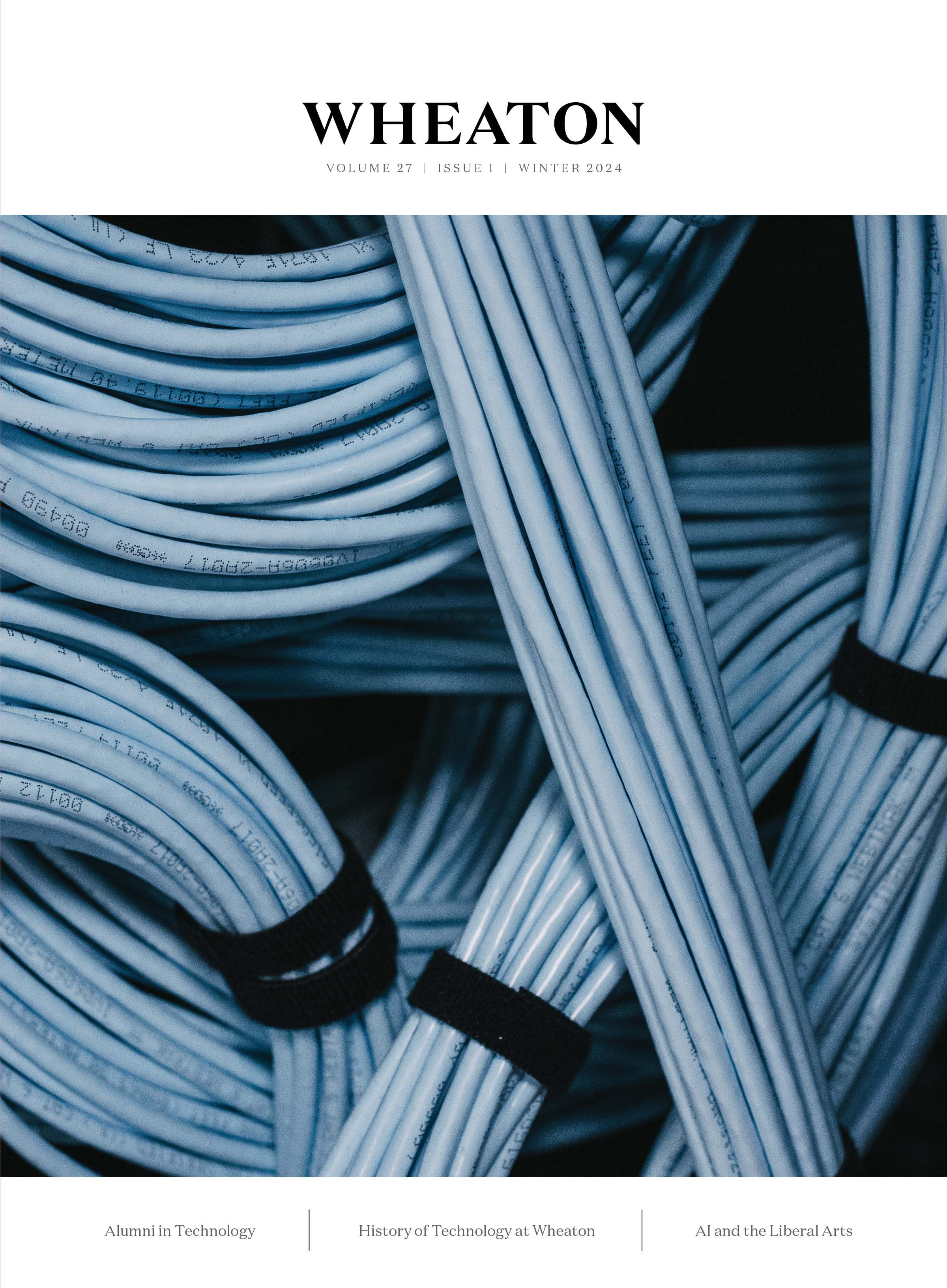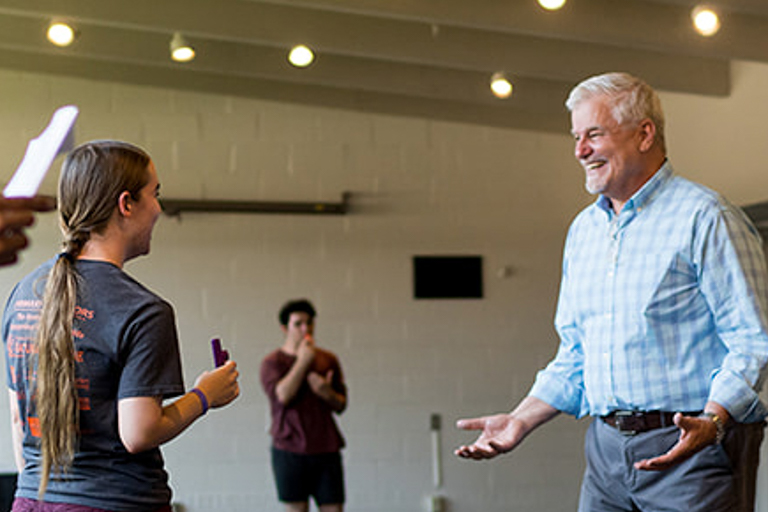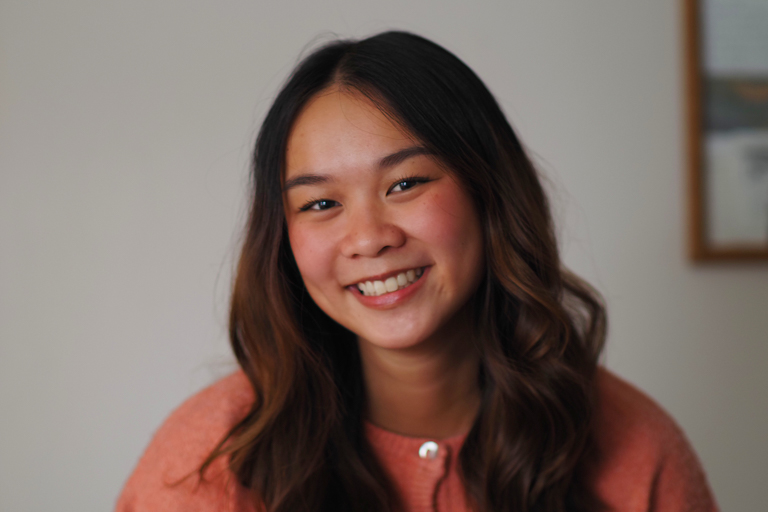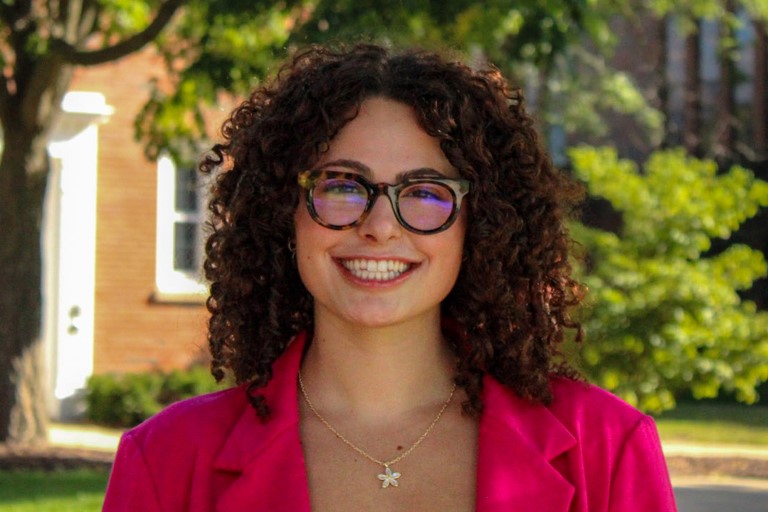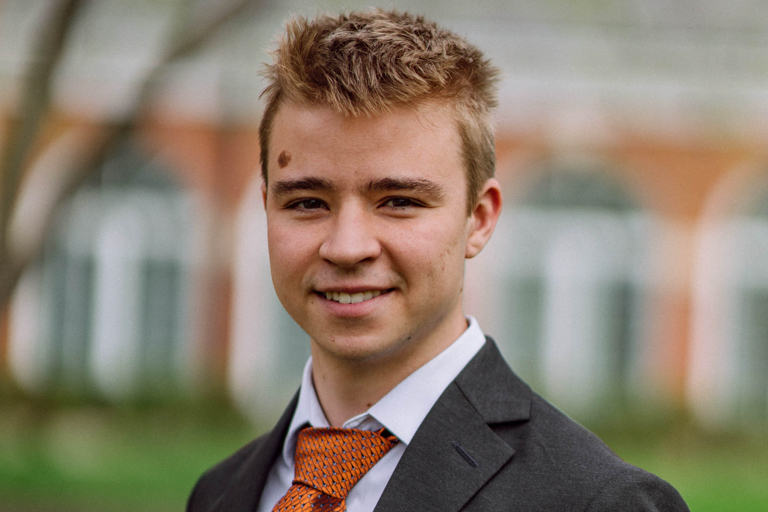WheatonGives: An Answer to Prayer
After three years dedicated to undergraduate research opportunities with Wheaton faculty, Seungju Kim ’23 wasn’t sure he’d have the money he needed to graduate. An anonymously funded Wheaton scholarship was the unexpected provision that changed everything.
Words: Grace Kenyon ’22
Photos: Courtesy of Seungju Kim ’23
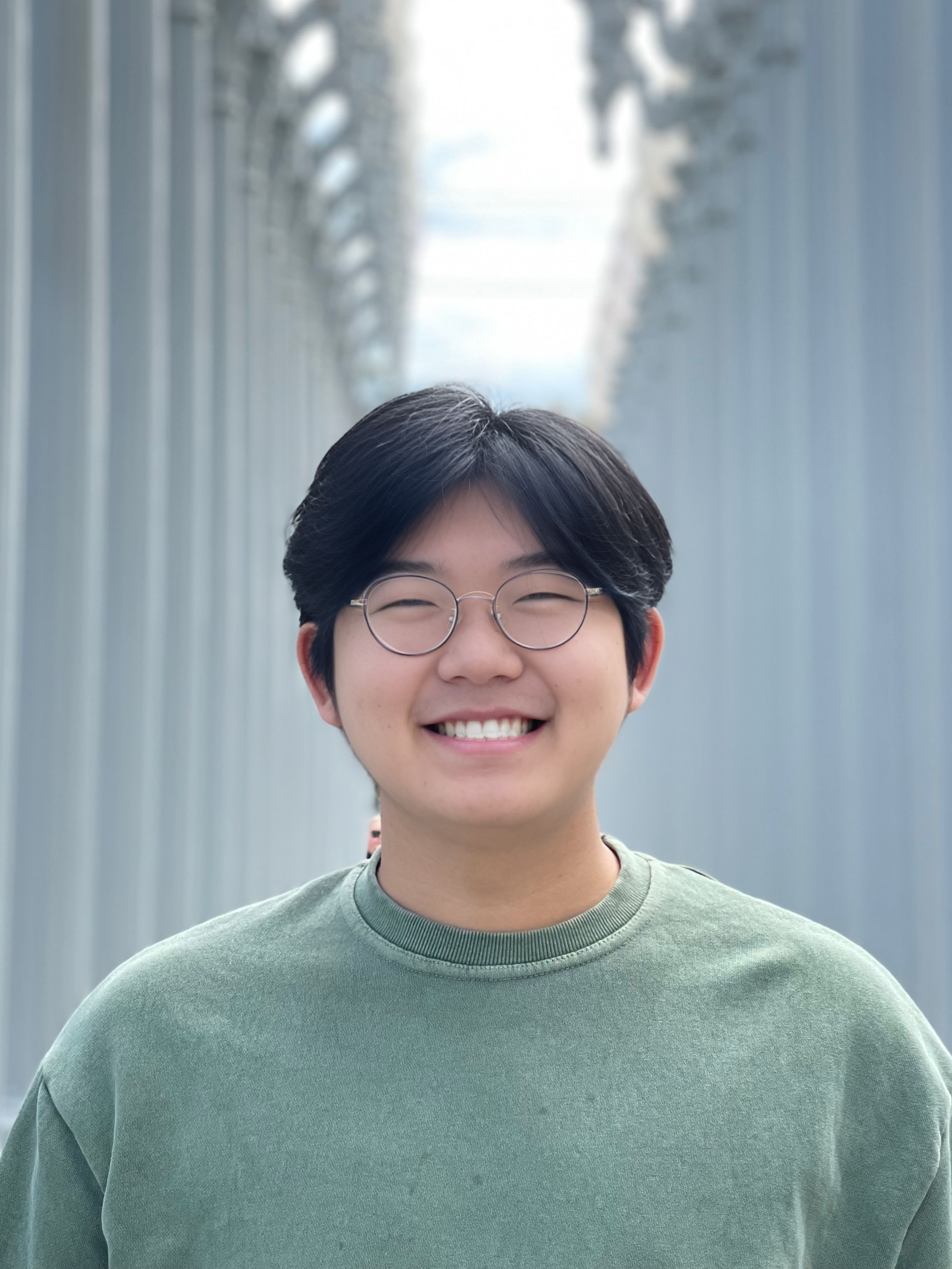
Seungju Kim ’23
As a high school student in Dallas, Texas, Seungju Kim ’23 worked for daycare programs and summer camps where he interacted with kids who had a range of behavioral differences. Some of them exhibited symptoms of what Kim would later learn was oppositional defiant disorder, acting irritable and spurning attempts from caregivers to connect with or discipline them. He found himself wondering what could be done to care for kids who seemed resistant to those attempts to connect and resolved to work toward becoming a child psychologist. “What, developmentally, is going on here?” he asked. “Why are they acting the way they are? And what are effective ways to respond to that behavior?”
Upon arriving at Wheaton, he already had an academic plan. Knowing research was a key factor in graduate program admissions, Kim sought out opportunities to do just that. Before his first semester was up, he had started work in Dr. Sandi Reuger’s Youth Risk and Resilience research lab. By the time he graduated in December of 2023, Kim was contributing to research at not one, but four institutions.
Some of these connections, like his work at the University of Nebraska, resulted from official internships that turned into long-term partnerships. Others grew from networking with Dr. Mark Yarhouse, Director of the Gender and Sexuality Institute, whose lab Kim worked in throughout college. Still others were the fruit of Kim’s intentionality, as he actively reached out to professors whose work he found interesting.
Throughout his undergraduate research, Kim discovered a passion for both the subject matter and the process of research itself. He completed an honors thesis in his junior year and is listed as the first author for several research papers that are currently under review. These experiential learning opportunities equipped him with valuable skills at each stage of the academic research process and an appreciation for the creativity he can exercise as a researcher. He has also witnessed the power of challenging assumptions and prioritizing empathy and understanding, which he hopes to carry forward in his work.
“One of the great things about research is that it’s just so versatile and there’s so much freedom,” Kim said. “You can take it in so many different directions. Research really has the ability to remind us that we have to be humble regarding any specific claims or assertions that we think we may have. Even when we do research, all we have is another piece of evidence—something that suggests something else.”
Kim’s empathetic approach to research is informed by his faith and by his other experiences as a Wheaton student. It would be easy to think that Kim spends all of his time in a lab, but as a student, he was also deeply involved in Residence Life. As a sophomore, he was the president of the UCCs (who support resident assistants), and during his junior year, worked as an RA on Fischer 5 East.
As an RA, he remembers meeting with the other Residence Life staff and praying for each other and for their residents before the start of the school year. He remembers peers and mentors who challenged him and were committed to growing alongside him.
“We are always so intentional about caring for one another,” Kim said, reflecting on his time with Residence Life. “And so I feel like I learned a lot. I was supported a lot and I got to support others as well.”
An Opportunity to Shine a Light
Coming into 2023, Kim’s family was facing a time of financial uncertainty. His father, who is a pastor, was in the middle of transitioning to a role at a new church. The family was moving across the country, and his mom was unable to work due to health issues. Kim says they were uncertain about how they would be able to pay for his senior year at Wheaton. When he found out he had received a WheatonGives Scholarship, it was a tangible answer to the family’s prayers. Established in 2022, the anonymously funded scholarship is awarded to two students each year. During the College’s annual giving day, any contributor can nominate an undergraduate student of their choice for the scholarship.
“We really felt like this was a huge blessing and just completely unexpected,” Kim said. “It was something that really made a huge impact.”
Kim trusts that scholarship donors know the barriers that students sometimes face when starting or finishing their degrees, and is thankful for the support.
“The ability that alumni [and other donors] have to give and support and empower students to finish their degree and to pursue passions, vocations, and callings is not just substantively helpful, but also a real force of empowering students with the tools and resources they need to graduate,” Kim said.
The scholarship money gave Kim the final push he needed to fund his last semester at Wheaton. He graduated in December of 2023 and continues to work at four research labs—at Wheaton, the University of Nebraska, Utah State, and Fuller Theological Seminary. After being accepted to several graduate programs, Kim will begin work on a doctorate in clinical psychology at the University of Illinois this fall.
As he continues to build upon his understanding of the difficult situations and issues related to gender and sexual minorities and the church, Kim carries a mantra that he says is often repeated in Yarhouse’s lab.
“He sees his research as a flashlight that shines a light, not a flamethrower that’s trying to spread the heat or increase the heat,” Kim said. “And I’m on that same page. I really just want to build bridges and start dialogues.”
After graduating from Wheaton, Kim was awarded the prestigious National Science Foundation (NSF) Graduate Research Fellowship, which includes $159,000 in funding toward his doctoral work.
